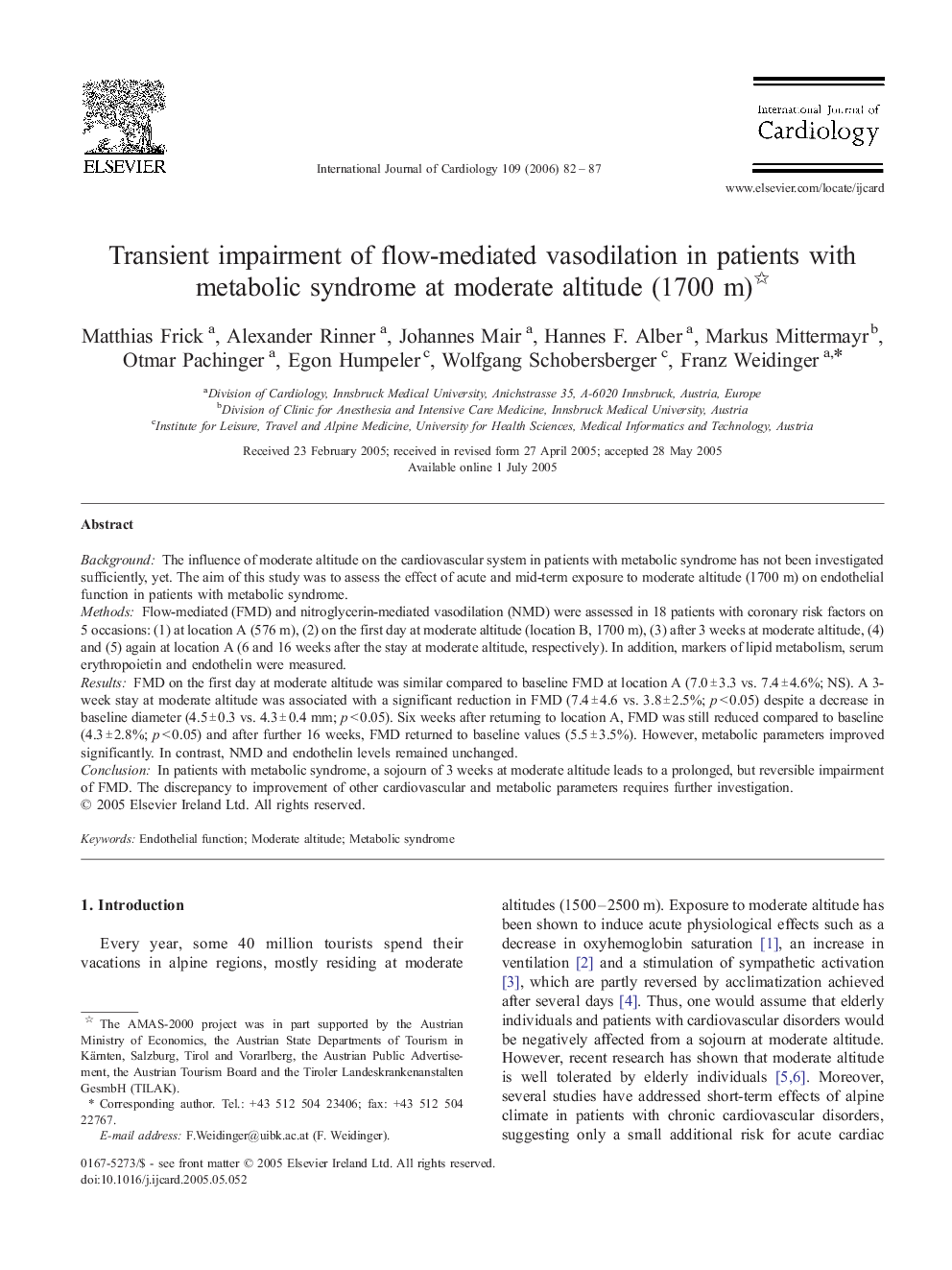| Article ID | Journal | Published Year | Pages | File Type |
|---|---|---|---|---|
| 2937014 | International Journal of Cardiology | 2006 | 6 Pages |
BackgroundThe influence of moderate altitude on the cardiovascular system in patients with metabolic syndrome has not been investigated sufficiently, yet. The aim of this study was to assess the effect of acute and mid-term exposure to moderate altitude (1700 m) on endothelial function in patients with metabolic syndrome.MethodsFlow-mediated (FMD) and nitroglycerin-mediated vasodilation (NMD) were assessed in 18 patients with coronary risk factors on 5 occasions: (1) at location A (576 m), (2) on the first day at moderate altitude (location B, 1700 m), (3) after 3 weeks at moderate altitude, (4) and (5) again at location A (6 and 16 weeks after the stay at moderate altitude, respectively). In addition, markers of lipid metabolism, serum erythropoietin and endothelin were measured.ResultsFMD on the first day at moderate altitude was similar compared to baseline FMD at location A (7.0 ± 3.3 vs. 7.4 ± 4.6%; NS). A 3-week stay at moderate altitude was associated with a significant reduction in FMD (7.4 ± 4.6 vs. 3.8 ± 2.5%; p < 0.05) despite a decrease in baseline diameter (4.5 ± 0.3 vs. 4.3 ± 0.4 mm; p < 0.05). Six weeks after returning to location A, FMD was still reduced compared to baseline (4.3 ± 2.8%; p < 0.05) and after further 16 weeks, FMD returned to baseline values (5.5 ± 3.5%). However, metabolic parameters improved significantly. In contrast, NMD and endothelin levels remained unchanged.ConclusionIn patients with metabolic syndrome, a sojourn of 3 weeks at moderate altitude leads to a prolonged, but reversible impairment of FMD. The discrepancy to improvement of other cardiovascular and metabolic parameters requires further investigation.
